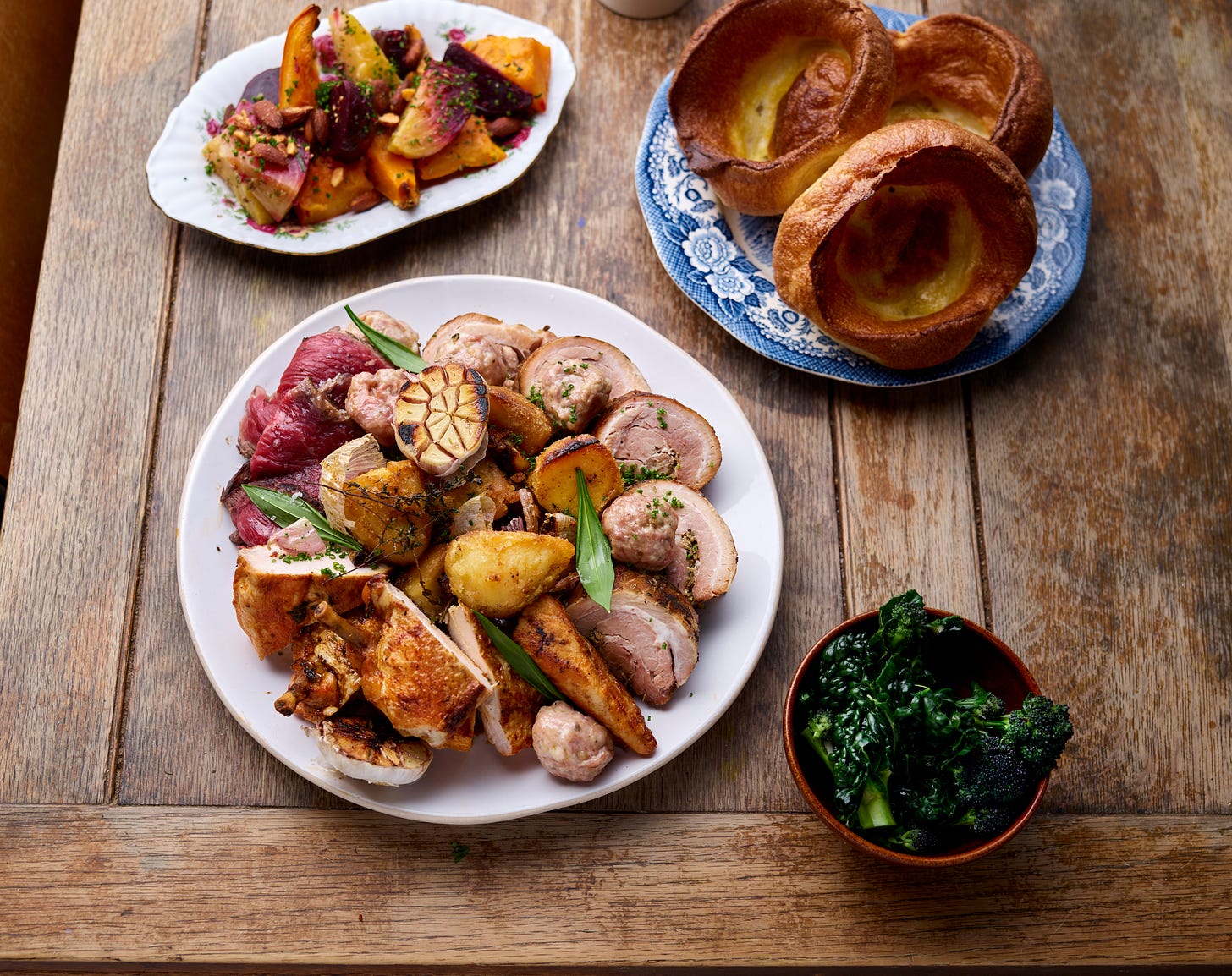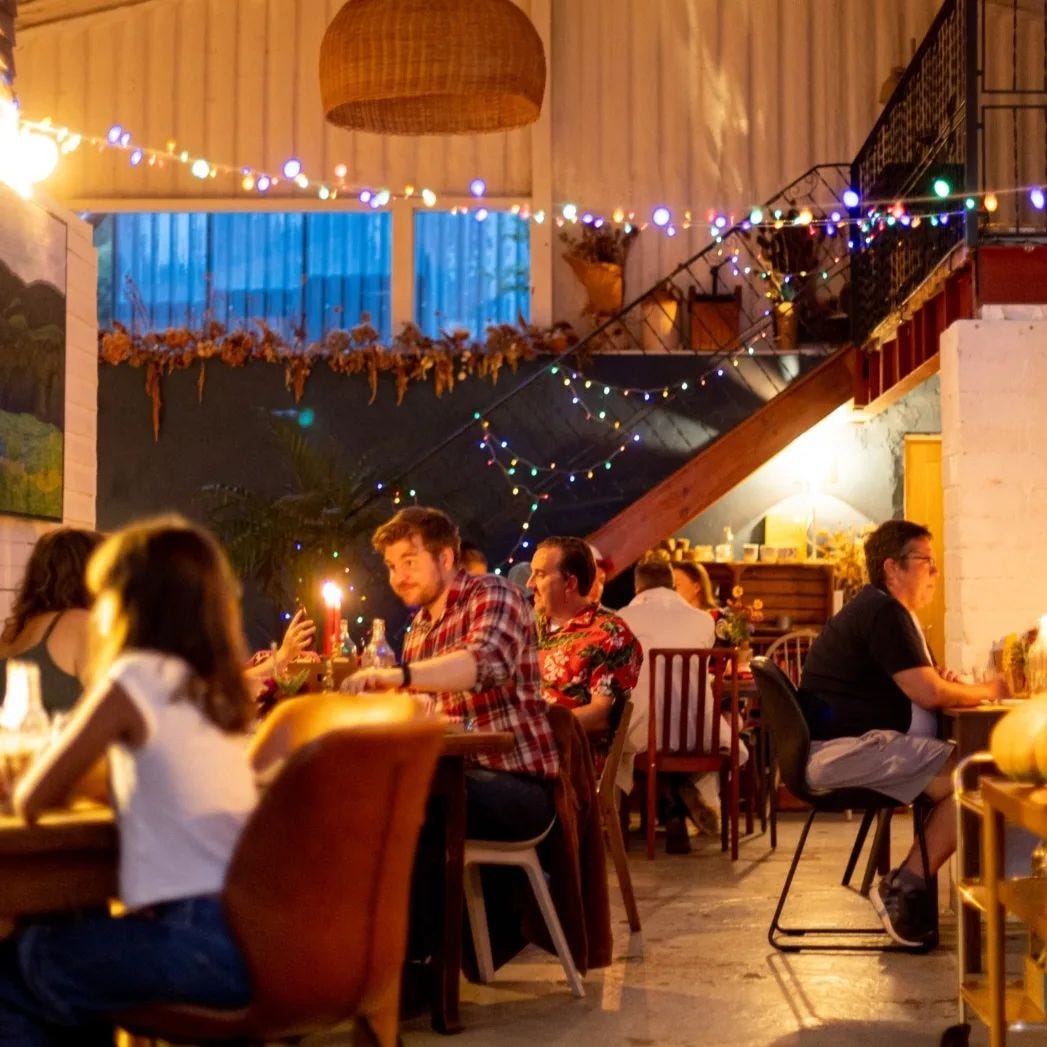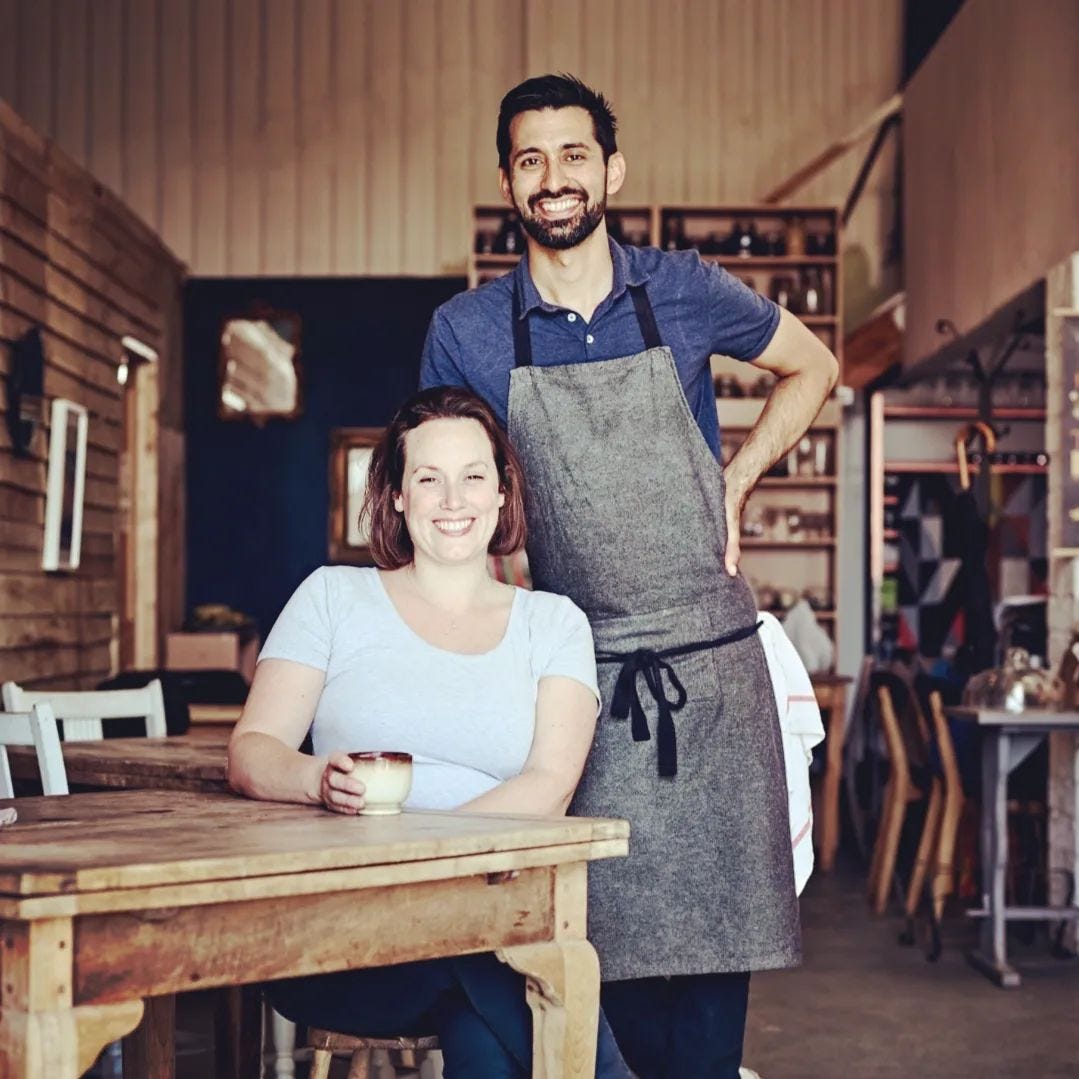Who does the best Sunday roast in Somerset?
And why is it Castle Farm?
Options, I’ve found so far, are fairly slim in Somerset for a truly satisfying Sunday roast (should your own residence not suffice). Leading candidates include The Chequers in Bath, which has delivered consistently good roasts for the best part of a decade if not more, The Pony in Chew Valley if you prefer things a bit more highbrow, relative newcomers The Bath Arms at Shearwater, and – on decent enough authority – Walcot House.
There’s another venue, though, in a small village and just off the B3110, that’s a little more quietly gone about its business dishing out probably the best roast in Somerset, if not beyond. Only recently, this has been made a bit more official – ‘Rate Good Roasts’, which allegedly assesses 200 roasts across the UK, this month ranked the Sunday roast at Castle Farm in Midford, just outside Bath, as the third best in the entire country.
If you’ve been, this won't be surprising. Though it is difficult to pin down exactly what makes Castle Farm’s roast so exceptional. Is it the fact they actually go out their way to make their roast potatoes (as opposed to 99% of places doing roasts), fluffy on the inside and crisp as shattered glass on the out? Is it that they source their 42-day-aged beef rump from Hereford and Aberdeen Angus cattle reared just outside Salisbury, chicken from Castlemead, and pork from Orchard Farm’s traditional breed pigs? Or is it down to the cumulative years chef-owner Pravin Nayar and team have spent in pub kitchens (including The Talbot in Mells), perfecting the nation’s favourite dish?
Maybe it’s simply that they lean so heavily into free-handed abundance. This might not be your first thought when you realise there’s no menu at Castle Farm. But you don’t really need one – instead of ordering a single meat for example, your table gets all three by default, served banquet-style alongside all the trimmings including stuffing, yorkshire pud, gravy, cauliflower cheese, greens, spuds, and root veg.
“It should be generous,” Pravin, who co-runs the cafe-restaurant with wife Leah, tells the WFJ. The word ‘democratic’ would also be appropriate: “No kid wants to be raised on cabbage when they're five years old. When one kid really likes stuffing, while one will just eat three yorkies, another will eat roasties, and another will eat everything, the nice part of doing it this way is there's no pressure on forcing anyone to eat anything they don't want. That's how we like having it at home, so that’s what we try to do here.”
‘Here’ consists of an open kitchen, dining room, and bar, all housed in a converted barn. Not the romantically restored timber-framed kind – more the large corrugated shed sort. But that's not important once you’re inside it, with all its warmth, charms and rusticisims (fairy lights! Bunting! Reclaimed furniture! Mezzanines!).
As you might’ve guessed, the restaurant happens to be situated on an (organic) farm, from which it rents an acre-sized allotment space. As a result, herbs and vegetables serving the kitchen are largely fresh and dependent on the season. “This week we'll have Jerusalem artichokes as one of the main veg,” says Pravin. “And homegrown greens. In the summer we get beetroots, carrots, chard, and all that kind of stuff. Onions and garlic too. I'd say in the summer 80% [of the veg we use] comes from the garden, and in the winter it's maybe 20%.” Particularly in those leaner months of the year, the kitchen tops up its stores from wholesaler Lovejoys down the road in Melksham.
The sourcing is fairly straightforward – Pravin says the main challenge is, not unlike cooking a roast at home, getting every component prepped, cooked, and to the table in sync. Every home cook who’s prepared Sunday roast from scratch knows there’s a degree of mental arithmetic in making sure that by the time the roast beef has cooked and rested, the potatoes – which don’t take quite as long – should be out the oven and cooled so as to not be eaten magma-hot, the veg (which may well have occupied the same pan as the meat) does not need as long as the beef, and the yorkshires need a much hotter oven than the meat. And all this before you’ve even lent a thought to the gravy.
The point that Castle Farm might, Pravin says, “cook for as many as 200 people on a Sunday”, means the culinary choreography has to be spot on. But then, since Pravin and fellow chef Nigel have worked in tandem for a dozen or so years, they have all that worked out pretty much to a tee.
And yes, with a full house of 48 table bookings over four sittings on many a Sunday, reservations are hard to come by (this pains me too – it has been more than a year since my last visit). Currently, all Castle Farm’s Sunday lunches are taken up three months in advance. But plans change and cancellations happen, which is why patience and persistence in chasing a table eventually pays its due.
If you do make it to Castle Farm for Sunday lunch, don’t forget to take advantage of what arguably makes the experience among the best, if not the best, in Somerset. Just be wary of going too overboard with it. “If you want another yorkie or you want some more roasties,” says Pravin, “just ask us. I don't mind giving more gravy, but I don't want it to then go into the bin.”







Loved this a year on! Now I’m hungry.
Nice article, thanks Hugh. Good to know, shall be testing this out :)